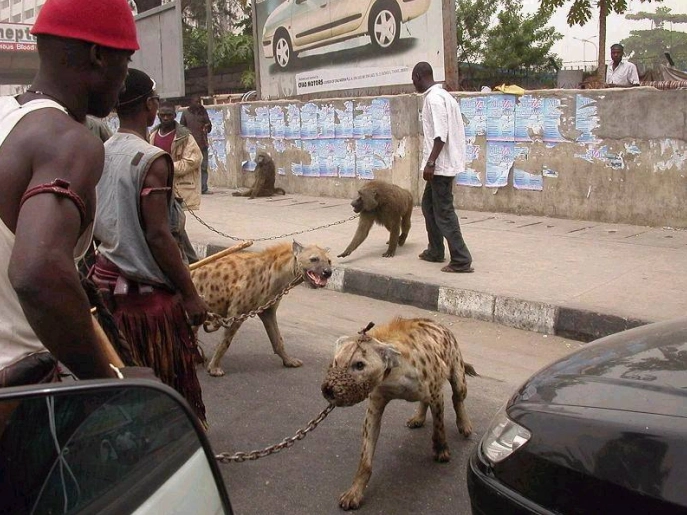Wildlife Advocacy & International Cooperation
The regional focus of Pandrillus is drill habitat, spanning the international boundary from the Cross River east to the Sanaga River. By working with federal and local government agencies and NGOs in both countries, Pandrillus is well-positioned to facilitate activities and initiatives between Cameroon and Nigeria for protection of wildlife.
In 2003 Pandrillus carried out the repatriation of 2 adolescent female gorillas smuggled into Nigeria from Cameroon and later seized by federal authorities. The event was a landmark for official collaboration between the 2 governments with respect to wildlife smuggling and coordination on environment issues, and was widely featured in local and international media. The gorillas’ successful repatriation brought positive reinforcement to the relatively new spirit of transboundary cooperation for wildlife protection. The gorillas reside at Limbe Wildlife Center.
The famous Taiping Four gorillas were repatriated to Cameroon after years of lobbying on the part of many international NGOs in support of the Governments of Cameroon and Nigeria. These wildborn, orphaned, western lowland gorillas were smuggled into Nigeria from Cameroon in 2003, and subsequently sold to the Taiping Zoo in Malaysia by the University of Ibadan Zoo, being listed as captive bred on the CITES permits. Once this shocking incident was brought to light by the International Primate Protection League, a long struggle ensued to repatriate them to Cameroon. The gorillas finally arrived at their new home, the Limbe Wildlife Center in December 2007 with great fanfare and recognition by the Cameroonian government. For a full story on the Taiping Four, visit www.ippl.org and the Limbe Wildlife Center website www.limbewildlife.org for photographs of the big day.
Sadly, Nigeria has long been a hub for wildlife trafficking in Africa with many animals smuggled into the country and re-exported. Nigeria was suspended from CITES in 2005 for its role in the scandalous Taiping Four affair. Pandrillus will continue to work with the Federal Ministry of Environment to determine and implement the necessary steps to stop illegal wildlife trade and restore Nigeria’s CITES status.

This well known, anonymous photograph was circulated to many persons concerned with the Nigerian environment, including Pandrillus. What it tells us is how far we yet must go to establish respect for wildlife in this country that possesses one of the most diverse faunas in Africa. Who will protect these hyenas and anubis baboons so wantonly exploited on the streets of Lagos, Africa’s largest city? If we can’t protect these highly visibly individuals, how will we protect free-living animals in the bush?
Locally, Pandrillus works with law enforcement including federal and state wildlife and forestry authorities, police and other NGOs, as well as local citizens and traditional rulers to stem wildlife trade in the areas where we operate. Today, it is rare to see wildlife publicly for sale in Cross River State and Pandrillus mobilizes police and other authorities to seize animals as mandated by law. In Cameroon Pandrillus works with the Last Great Ape Organization www.lastgreatape.org and other NGOs and government on many wildlife smuggling incidents. The Limbe Wildlife Center recently accepted over 1,200 African Grey Parrots which LAGA was involved in confiscating at Douala Airport.
Pandrillus was instumental in the permanent closure of the Calabar Zoo, which was shut down in 2001 when we removed the last animal, adult chimpanzee “Jacob”, to the Afi Mountain Drill Ranch facility. Today the site is popular public garden. Zoos in most parts of Africa are inadequate, miserable places with no benefit to animals and no positive message about wildlife to the public who visit them. Even worse, many zoos are themselves involved in illegal wildlife trade and there is much work to be done to reverse this terrible trend.